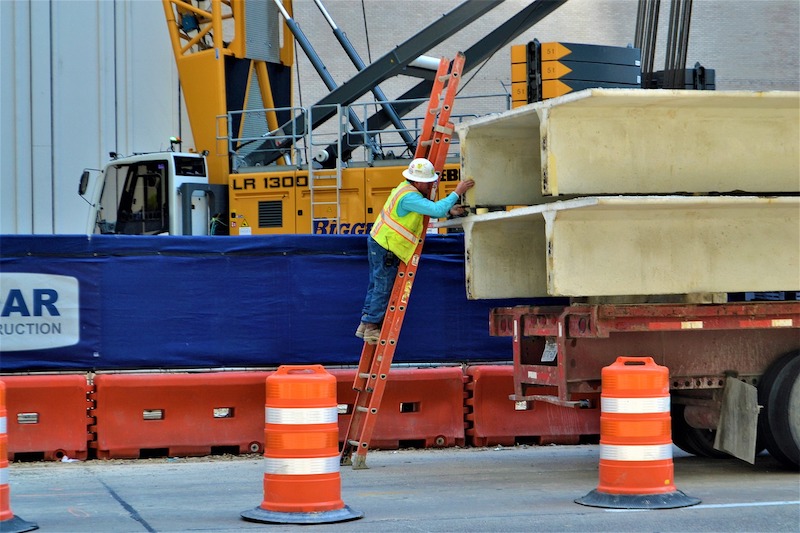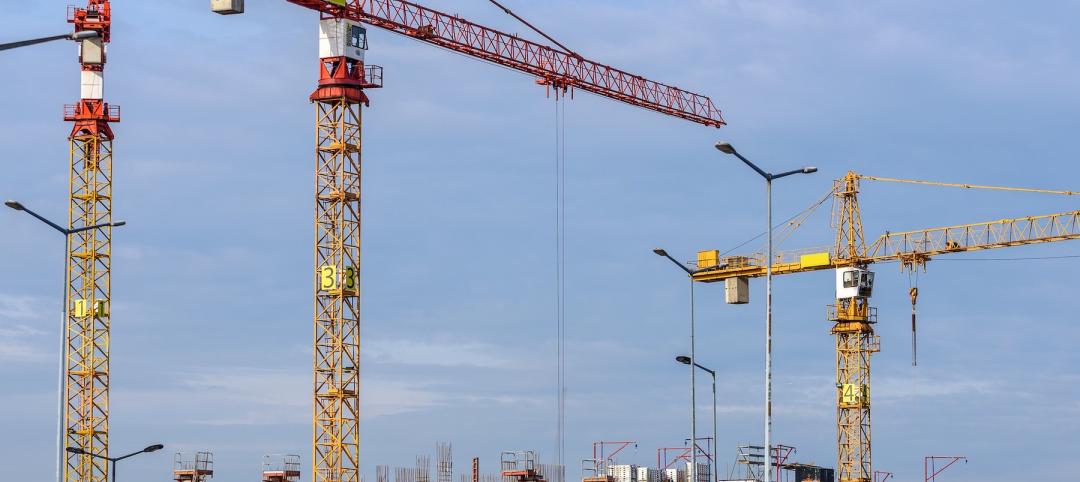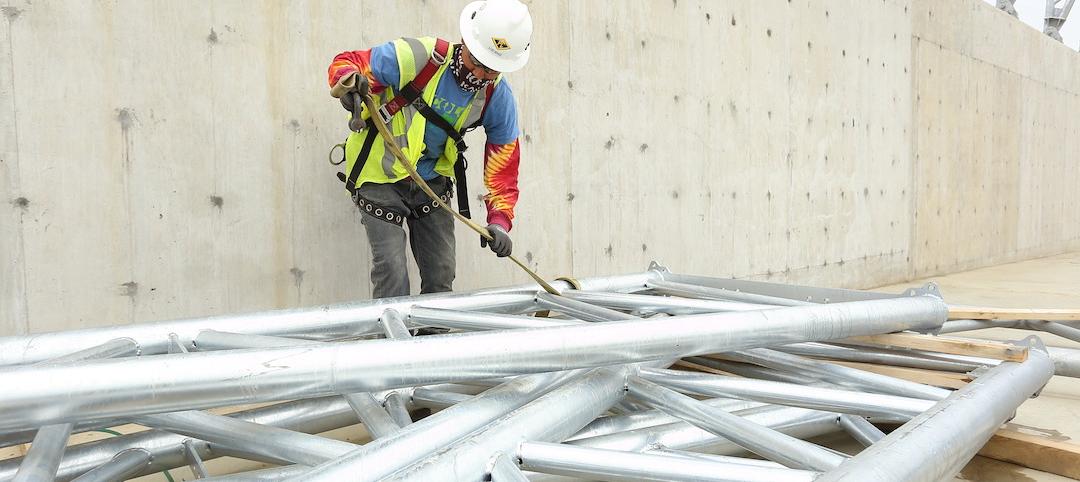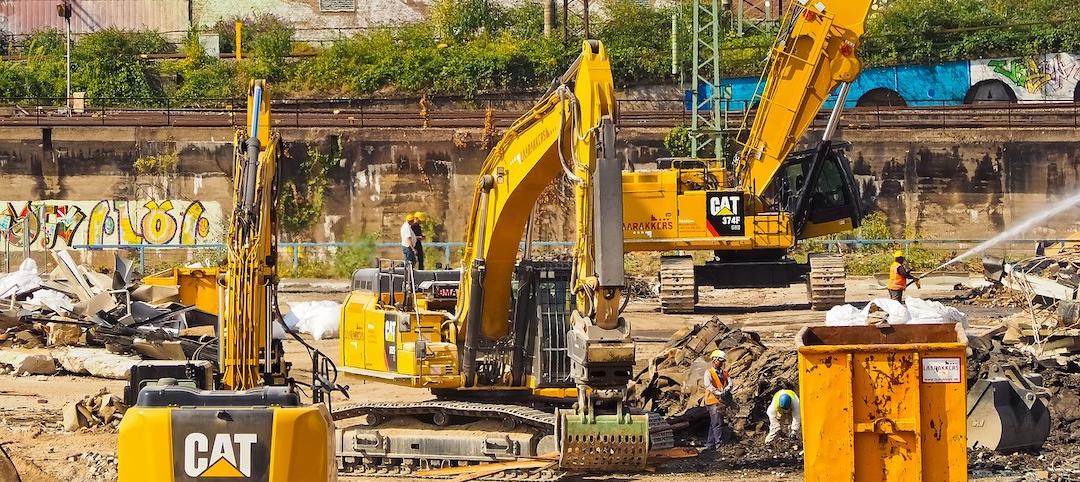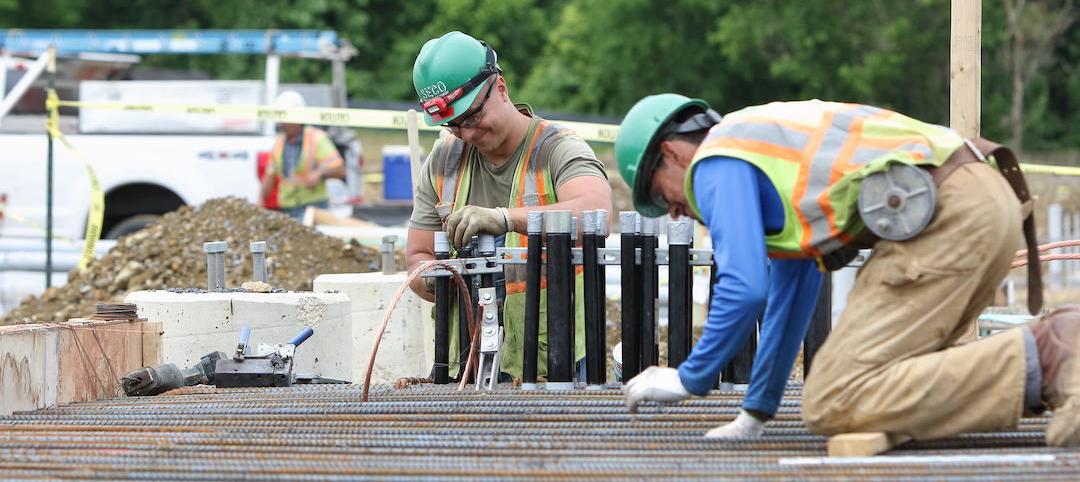Construction employment stagnated in January, ending eight months of recovery from the pandemic-related losses of early 2020, according to an analysis by the Associated General Contractors of America of government data released today. Association officials added that new measures being considered in Congress, including the PRO Act and the National Apprenticeship Act, threaten to undermine the sector’s recovery by disrupting ongoing projects and hampering employers’ ability to train workers.
“The stagnation in construction employment in January may foreshadow further deterioration in the industry as projects that had started before the pandemic finish up and owners hold off on awarding new work,” said Ken Simonson, the association’s chief economist. “With so much of the economy still shut down or operating at reduced levels, it will likely be a long time before many nonresidential contractors are ready to hire again.”
Construction employment dipped by 3,000 to 7,392,000 in January from a downwardly revised December total. Employment in the sector remains 256,000 or 3.3% lower than in February 2020, the most recent peak.
Nonresidential construction has had a much weaker recovery than homebuilding and home improvement construction, Simonson added. While both parts of the industry had huge job losses in early 2020 from the pre-pandemic peak in February to April, residential building and specialty trade contractors have now recouped all of the employment losses they incurred. In contrast, nonresidential construction employment—comprising nonresidential building, specialty trades, and heavy and civil engineering construction—was 259,000 or 5.5% lower in January than in February 2020. Only 60% of the job losses in nonresidential construction had been erased as of last month.
Unemployment in construction soared over the past 12 months. The industry’s unemployment rate in January was 9.4%, compared to 5.4% in January 2020. A total of 938,000 former construction workers were unemployed, up from 515,000 a year earlier. Both figures were the highest for January since 2015.
Association officials warned that the newly-introduced PRO Act would hurt construction workers and demand for future projects by unleashing a new wave of labor unrest that could put a halt to many types of construction projects, even those that are not directly involved in a labor dispute with a union. Meanwhile, the National Apprenticeship Act seeks to deny federal funding to registered apprenticeship programs that are not operated with unions. This would undermine the ability of many firms across the country to train and prepare workers.
“Instead of finding ways to build back better, these new congressional proposals would leave many workers unpaid and untrained while projects languish, unfinished,” said Stephen E. Sandherr, the association’s chief executive officer. “It is hard to see how cutting funding to training programs, undermining workers, and crippling the economy will help put more people back to work in construction or other fields.”
Related Stories
Reconstruction & Renovation | Mar 28, 2022
Is your firm a reconstruction sector giant?
Is your firm active in the U.S. building reconstruction, renovation, historic preservation, and adaptive reuse markets? We invite you to participate in BD+C's inaugural Reconstruction Market Research Report.
Industry Research | Mar 28, 2022
ABC Construction Backlog Indicator unchanged in February
Associated Builders and Contractors reported today that its Construction Backlog Indicator remained unchanged at 8.0 months in February, according to an ABC member survey conducted Feb. 21 to March 8.
Industry Research | Mar 23, 2022
Architecture Billings Index (ABI) shows the demand for design service continues to grow
Demand for design services in February grew slightly since January, according to a new report today from The American Institute of Architects (AIA).
Codes and Standards | Mar 1, 2022
Engineering Business Sentiment study finds optimism despite growing economic concerns
The ACEC Research Institute found widespread optimism among engineering firm executives in its second quarterly Engineering Business Sentiment study.
Codes and Standards | Feb 24, 2022
Most owners adapting digital workflows on projects
Owners are more deeply engaged with digital workflows than other project team members, according to a new report released by Trimble and Dodge Data & Analytics.
Market Data | Feb 23, 2022
2022 Architecture Billings Index indicates growth
The Architectural Billings Index measures the general sentiment of U.S. architecture firms about the health of the construction market by measuring 1) design billings and 2) design contracts. Any score above 50 means that, among the architecture firms surveyed, more firms than not reported seeing increases in design work vs. the previous month.
Market Data | Feb 15, 2022
Materials prices soar 20% between January 2021 and January 2022
Contractors' bid prices accelerate but continue to lag cost increases.
Market Data | Feb 4, 2022
Construction employment dips in January despite record rise in wages, falling unemployment
The quest for workers intensifies among industries.
Market Data | Feb 2, 2022
Majority of metro areas added construction jobs in 2021
Soaring job openings indicate that labor shortages are only getting worse.
Market Data | Feb 2, 2022
Construction spending increased in December for the month and the year
Nonresidential and public construction lagged residential sector.


